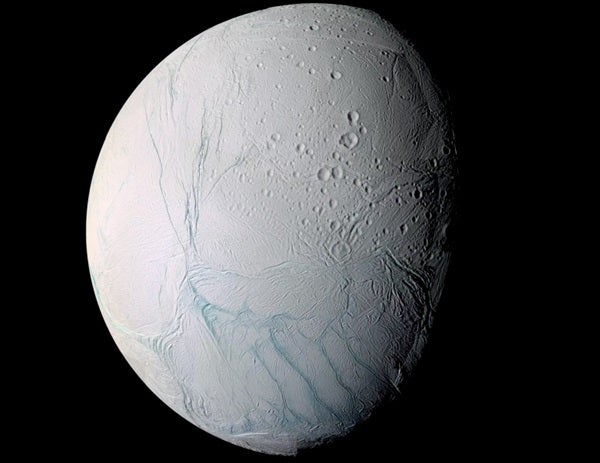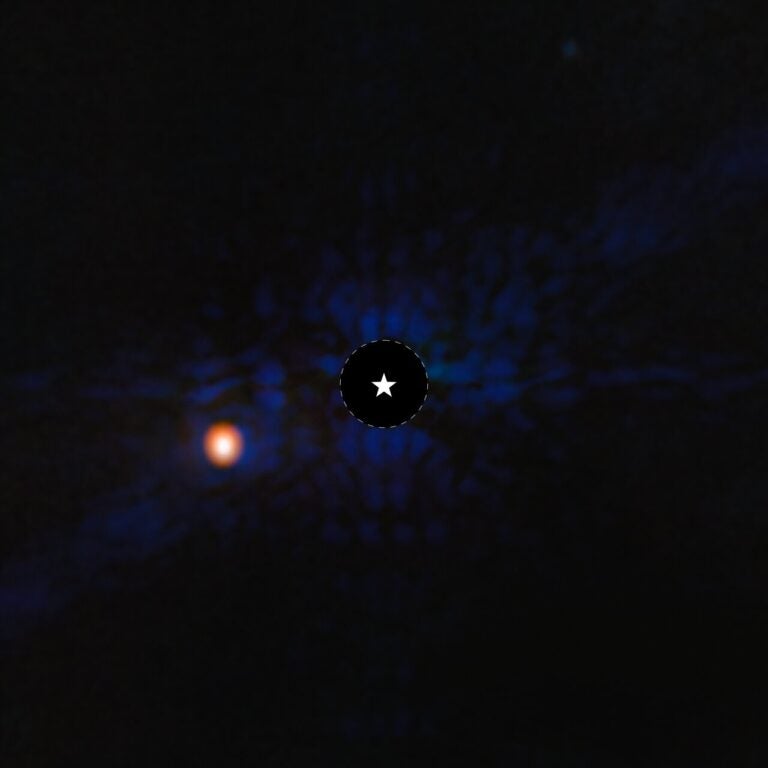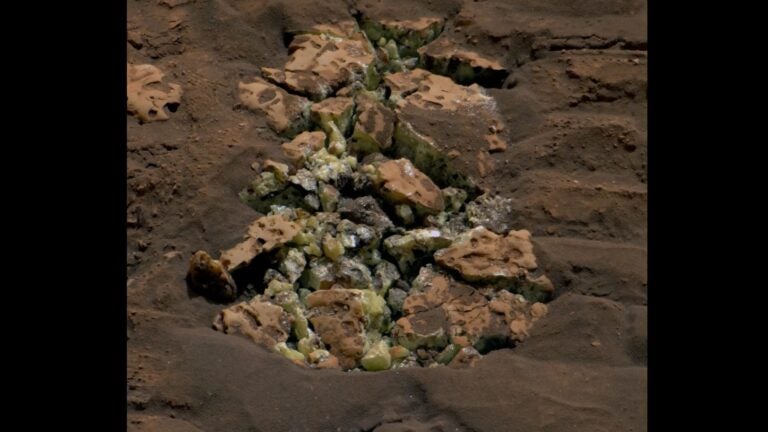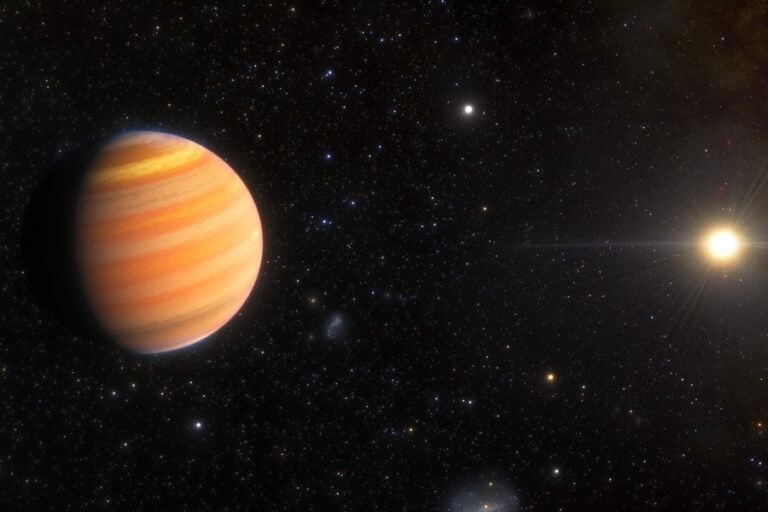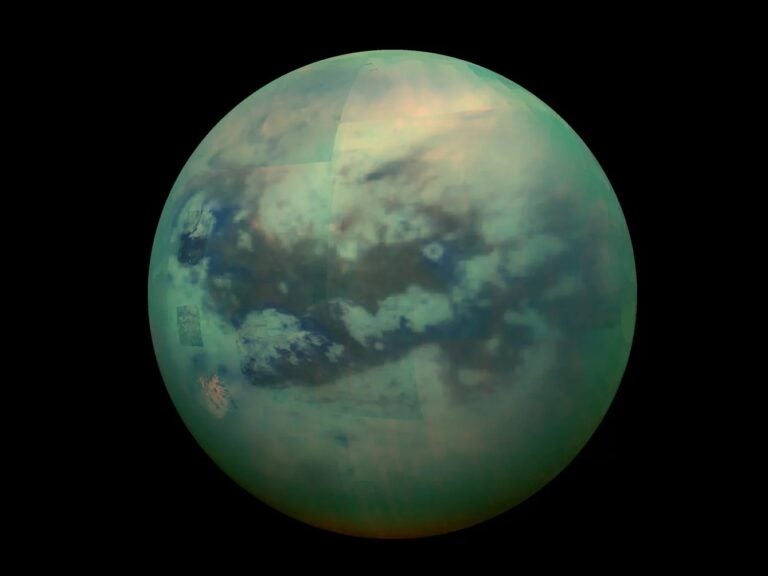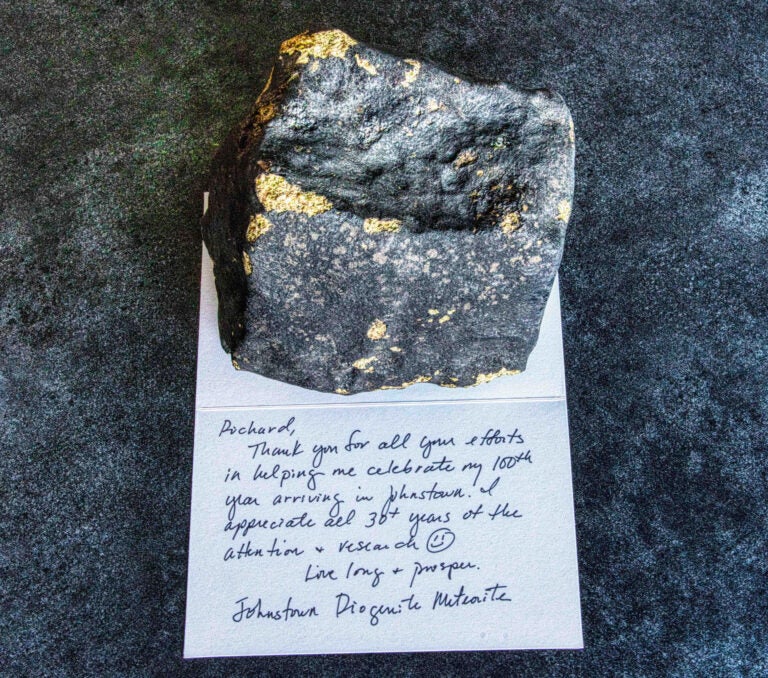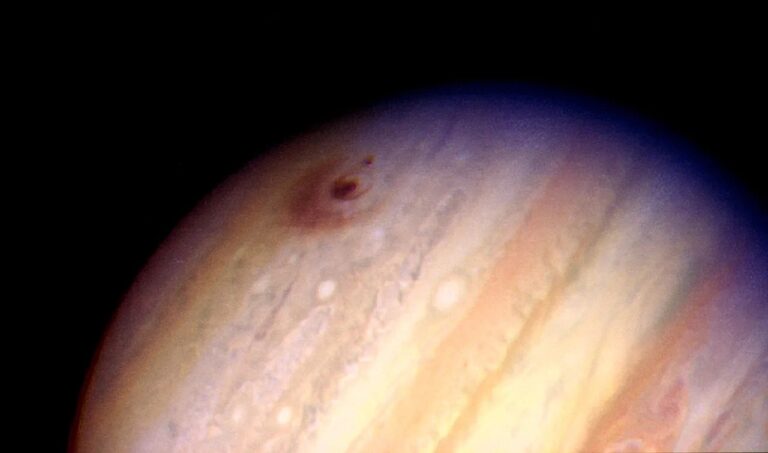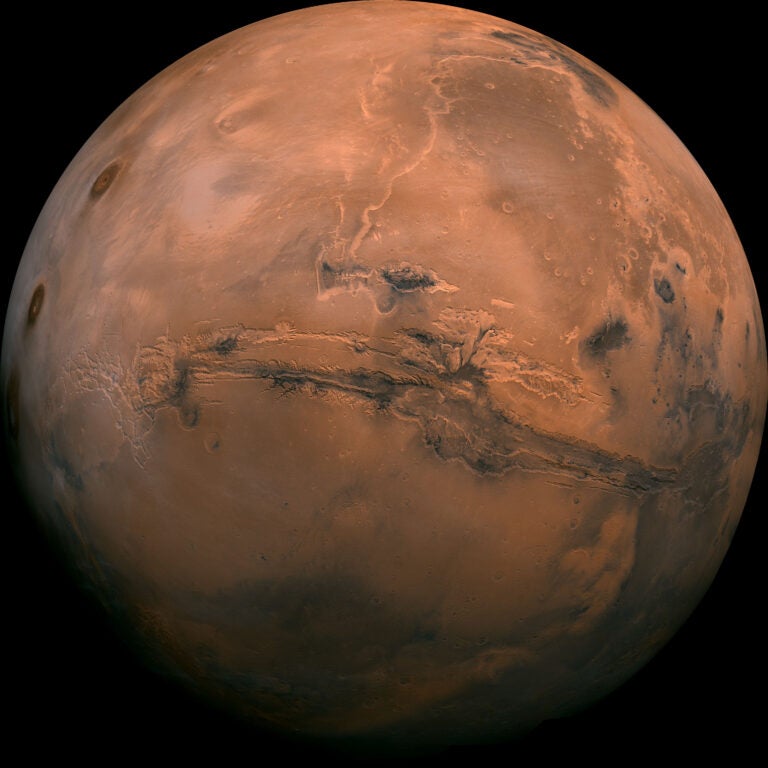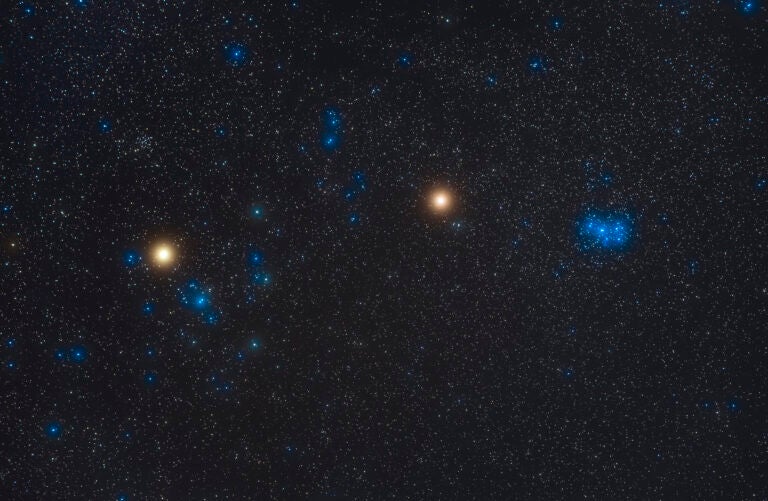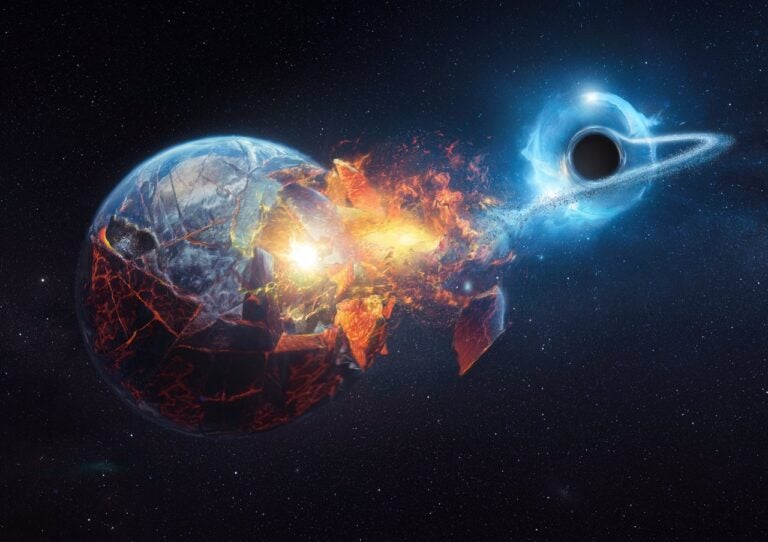Planetary scientists think an ocean of water, carbon dioxide, ammonia, salt, and other compounds sits below the saturnian moon Enceladus’ cold surface. The gravity of the ringed world creates tides, flexing and heating Enceladus to keep the water mixture liquid. // Astronomy: Roen Kelly, after G. Tobie, et al.
First, water ice (frozen water) is abundant on Saturn’s moon Enceladus because it formed far from the Sun. Almost all the satellites of the giant planets (with the important exception of Jupiter’s Io), dwarf planets like Pluto, comets, and Kuiper Belt objects formed with a healthy endowment of water ice. Hydrogen is the most abundant element in the universe and oxygen is the third, so that translates into copious H2O. Beyond a certain distance from the Sun (called the “frost line” or “snow line”), any water should be in solid form, and when the planets and satellites developed, ice was an important chemical component.
So where does the “water” in the plumes that are erupting from Enceladus come from? This is one of the great discoveries of NASA’s Cassini mission. Enceladus’ south polar region is intensely mangled and deformed, but out of several great fissures (called “tiger stripes”) pour heat and jets, or geysers, of water vapor and tiny particles. The water vapor contains a fair bit of carbon dioxide, plus smaller amounts of ammonia, methane, and other organic compounds. The particles are mostly ice, but some contain salt and/or bicarbonate.
What this adds up to, in the minds of most planetary scientists, is evidence for a salty, fizzy ocean below Enceladus’ cold surface ice. We don’t know whether this ocean is global in extent or more localized, but we do know that the presence of an ocean allows Enceladus’ ice to flex under Saturn’s gravitational pull. And it is this flexing and the mechanical heating that goes with it that must keep diminutive Enceladus, a moon no bigger than the state of Arizona, so active.
So where does the “water” in the plumes that are erupting from Enceladus come from? This is one of the great discoveries of NASA’s Cassini mission. Enceladus’ south polar region is intensely mangled and deformed, but out of several great fissures (called “tiger stripes”) pour heat and jets, or geysers, of water vapor and tiny particles. The water vapor contains a fair bit of carbon dioxide, plus smaller amounts of ammonia, methane, and other organic compounds. The particles are mostly ice, but some contain salt and/or bicarbonate.
What this adds up to, in the minds of most planetary scientists, is evidence for a salty, fizzy ocean below Enceladus’ cold surface ice. We don’t know whether this ocean is global in extent or more localized, but we do know that the presence of an ocean allows Enceladus’ ice to flex under Saturn’s gravitational pull. And it is this flexing and the mechanical heating that goes with it that must keep diminutive Enceladus, a moon no bigger than the state of Arizona, so active.
William McKinnon
Washington University, St. Louis
Washington University, St. Louis

